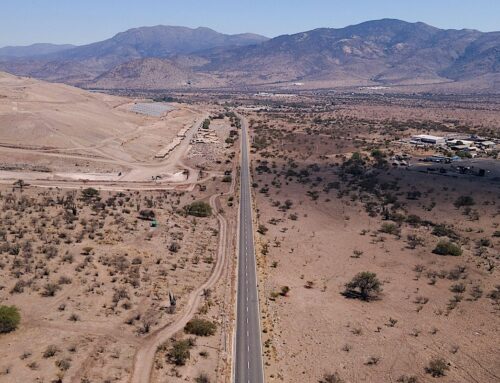Could Weakening Environmental Law Actually Strengthen Climate Action?
September 24, 2025
While the Institute for Progress, where Mackenzie works, is still reviewing the SPEED Act and has yet to endorse it, the American Council on Renewable Energy put out a statement this summer in support. ACORE President and CEO Ray Long said: “The federal permitting process is cumbersome and outdated, creating costly delays for all energy projects—clean and conventional alike. Without permitting reform, the U.S. risks losing ground in the global race for technological and economic leadership—especially as energy demands surge in the AI era.”
Meanwhile, the American Petroleum Institute in early September launched a seven-figure ad campaign pushing Congress to pass the SPEED Act. And therein lies the red flag. This year’s Abundance conference was sponsored in part by Stand Together Trust, an institution within the climate-denying Koch network that also funds conservative organizations like the anti-LGBTQIA+ Alliance Defending Freedom. Just this Monday, Secretary of Energy Chris Wright described permitting reform as “the biggest remaining thing” in Trump’s oil-rich energy agenda.
The fossil fuel sector is a villain to countless communities of color that have fought tirelessly to stop its pollution and destruction in their neighborhoods. NEPA has been instrumental in their advocacy. After all, a foundation of the environmental justice movement is meaningful engagement: “Nothing about us without us” is a slogan I often hear.
“Whatever the outcome, government should be transparent and should be responsive to voices from the affected communities,” explained Marianne Engelman-Lado, director of New York University’s Environmental and Climate Justice Lab and former deputy general counsel for environmental initiatives at former President Joe Biden’s Environmental Protection Agency. “NEPA embraces that.”
Engelman-Lado recognizes that time is of the essence when it comes to addressing the climate crisis but said leaders can address the urgency of the issue without sacrificing environmental protections. She doesn’t believe that the abundance narrative adequately considers other causes for the challenges projects face.
“What happens is an idea or rhetoric starts to gather steam, and everybody jumps up on the bandwagon, but let’s actually examine what is the problem leading to the pace of development,” she said. “My concern is throwing out the baby with the bathwater. That on the wings of what might be admirable policy—clean energy, affordable housing—we get this overbroad interpretation of, If we amend NEPA, we will achieve this outcome. But I think what it’s really doing is cutting out the ability of communities to have a say. And that’s not going to lead to better outcomes for communities.”
What if instead of rewriting NEPA, researchers examined and applied learnings from projects where reviews were quick and efficient? What if they tried to understand what bogged down the slow ones? That’s the idea of Jamie Pleune, an associate law research professor at the University of Utah who has written in opposition to reforms.
“I don’t believe that there are any quick fixes,” she said. What the situation demands is a thorough analysis to understand why delays and successes happen. Blaming the courts ignores the underlying problems that fuel lawsuits. “Litigation is a symptom; it’s not a cause,” she said. “If people don’t oppose a project, you’re not going to have litigation.” Opposition rises, she argues, when the public lacks information, clarity, and trust in decision-makers and their review processes.
“There’s lots of history demonstrating that when people trust a process, they are willing to accept it, even if they don’t like the outcome,” she said.
Rebuilding trust may take years. Abundance advocates are in a rush—after all, the climate crisis is here—but maybe time is exactly what they need. Trump’s got three years left. He’s unlikely to end his assault on renewable energy, and the SPEED Act is not yet final. The work to start anew begins now—only with trust, research, resources, and a deep commitment to community engagement.
Search
RECENT PRESS RELEASES
Related Post



